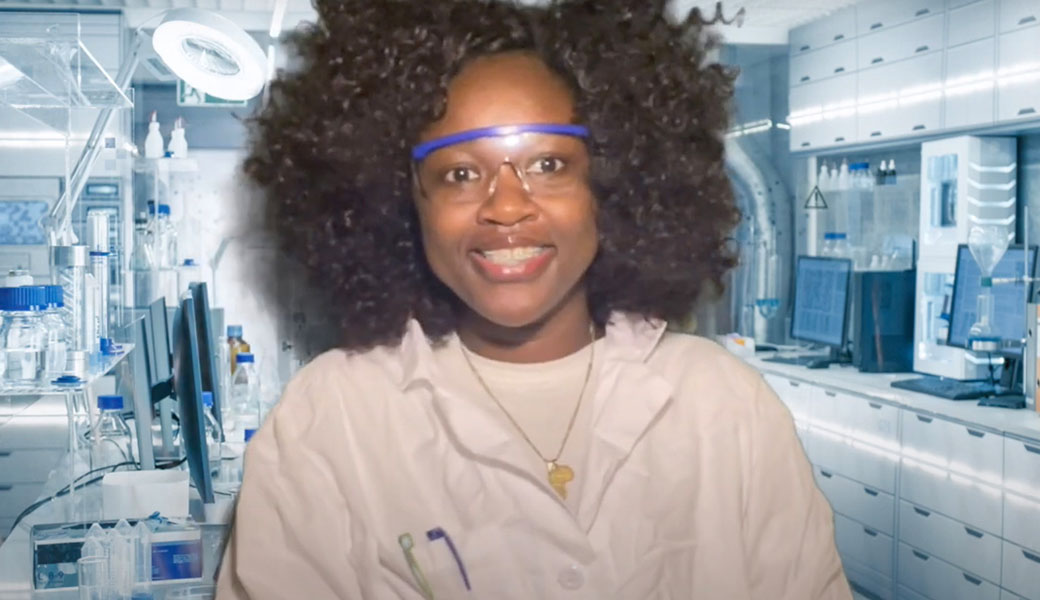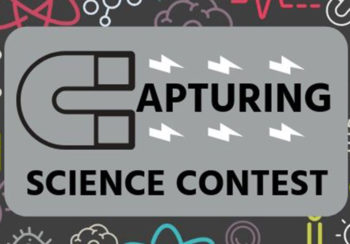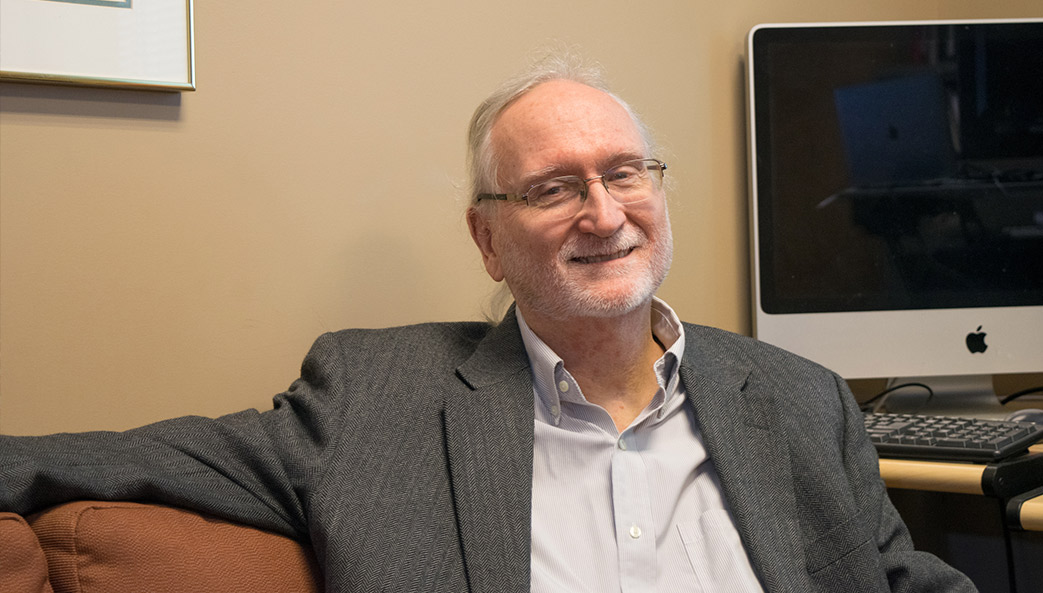Before Fatoumata Toure entered kindergarten, she learned a hard lesson about the importance of fresh drinking water. Now as a college freshman, she has earned the top prize in the Capturing Science Contest, sponsored by the University of Georgia Libraries and the Office of Research, for making an informative and innovative video to explain the science behind the concerns.
Toure, a North Cobb High School graduate who intends to major in environmental engineering, received the top prize of $1,000 as well as a special bonus prize of $200 for this year’s contest for integrating research related to social justice in her piece.
“I wanted to do something that was different and innovative,” Toure said of her video that explored what happened to “Freshline Freshwater,” a character she created complete with blue hair and Vans. Toure portrayed a reporter trying to solve the mystery with various characters that explained environmental factors from E. coli to farming practices, and she went in depth into the social justice issues of redlining and urban planning that contributed to a health crisis involving lead in the drinking water in Flint, Michigan.
First-place video by Fatoumata Toure.
A productive Thanksgiving
Because of social distancing during her Thanksgiving break, Toure decided to create a script for a one-woman cast, gathering up fun costumes and experimenting with a green screen to portray Zoom-style interviews for her Capturing Science project.
While Toure incorporated a lot of the research and information she recently gained from her college classes, her inspiration goes back to when she was a small child living in Guinea in West Africa.
While her grandmother had warned her against drinking the water in a nearby community, she couldn’t pass up the opportunity to enjoy a home-chilled popsicle. Because the water used for the treat was contaminated, she developed a severe bacterial infection.
“Looking back, I realize how fortunate I was. The reality is that most people in countries like that don’t have access to health care like I did,” Toure said, adding that her experience has inspired her to pursue her degree and work in the field of water quality management.
Second-place video by Sarah Blackwell, Zack Garza, Terrin Warren and Peter Woolfitt.
Interesting explanations
“The issue with water infrastructure is really complex, but she explained it in a really interesting way. It was so funny that I didn’t feel like I was learning, but at the end, I was blown away with what I learned,” said Amber Maduike, a senior studying biology and psychology.
As president of the Minority Student Science Association, Maduike helped judge this year’s special category, which was offered to the best entry that involved research on social justice or COVID-19.
“After all that’s happened in 2020, it was a really good idea to consider those issues,” Maduike said, adding that she and her fellow MSSA board members enjoyed seeing the broad spectrum of entries, from art projects to podcasts and websites. “There were a lot of interesting projects. They were very different, and it was hard to pick a winner.”
Third-place video by Alex Benoit.
In addition to Toure’s first-place finish, the following students will receive Capturing Science prizes.
- The $800 second-place prize will be split among Sarah Blackwell, Zack Garza, Terrin Warren, Peter Woolfitt and Skylar Zhang, who are doctoral students in the department of mathematics. The team produced an animated video about the mathematics of gerrymandering, a political science term for manipulating district boundaries for an electoral advantage.
- Alex Benoit, a dual enrollment student from Oconee County High School, will receive the third-place prize of $600 for his video on the endosymbiotic theory. He breaks down theories of the origins of life far beyond the discussions of Charles Darwin in most introductory biology courses.
- First-year undergraduate students Prachi Patel, Grace Watterson and Jasmine Querido will split the $400 fourth-place prize for their video on quantum computers. The students, who are majoring in geology, biochemistry and molecular biology and landscape architecture, began learning about scientific visualization in high school at South Forsyth High School and chose to practice their skills with the contest.
- An honorable mention was given to Xiomy-Janira Pinchi-Davila, a graduate student in integrated plant sciences who crocheted a three-dimensional model of the COVID-19 virus. The stuffed amigurumi-style toy, which includes a look at the inner and outer structures of the virus, is intended as a visual aid to teach biological concepts to children and adults.
For Toure, who works at the circulation desk of the Science Library, the process of making the video was a prize in itself. She had fun creating the characters and learning new video techniques and skills, and she said that the lessons will serve her well in her future career.
“I want to work in engineering, but I know that a part of that has to be environmental literacy.
I can build all the coolest infrastructure in the world, but if I don’t teach the general population about how to take care of it, then we’re back at square one,” she said. “This contest allowed me to practice those environmental literacy tools because I know I want to do that.”
To learn more about the Capturing Science Contest and to view the entries, visit https://guides.libs.uga.edu/capturingscience.






